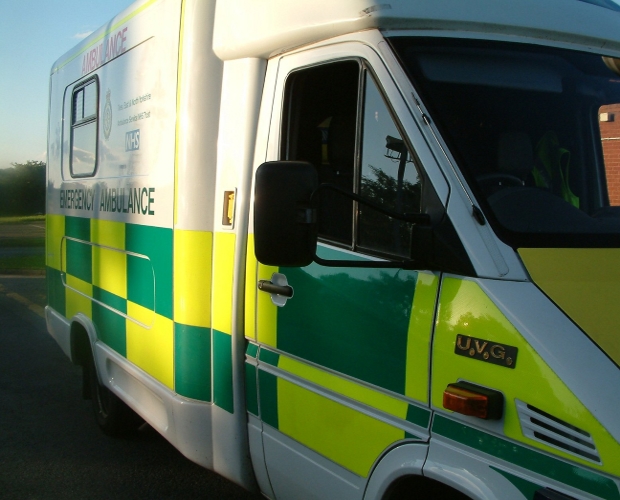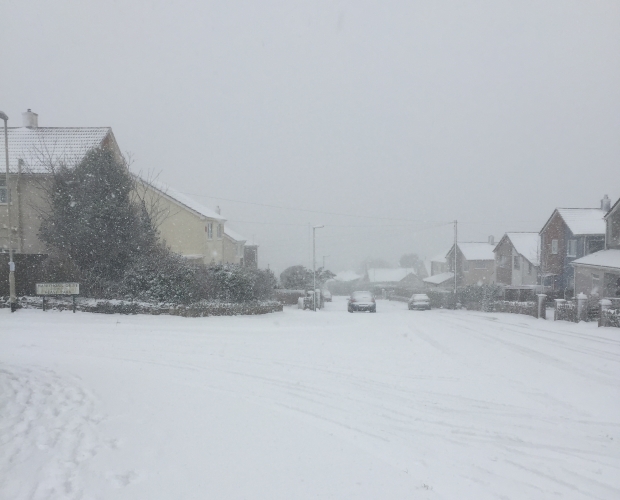T: 01822 851370 E: [email protected]
ambulance
The Telegraph reports that there is a 'Heartbreaking' rural-urban divide which means some patients face lengthy waits of up to 1 hour 40 minutes for category two calls Heart attack patients in rural areas wait nearly 50 per cent...
The Guardian reports how a d isparity between rural and urban areas has been uncovered by Lib Dem FoI requests to 10 ambulance trusts Patients in some rural areas wait almost three times longer for emergency ambulances than...
BBC reports that members of Shropshire Council have backed calls for ambulances that serve solely the county as they claim the system currently offered by West Midlands Ambulance Service (WMAS) does not serve locals well enough WMAS issued that...
An article featured by the Guardian reports that how a Cumbrian town is fighting to keep its service as the residents fear plans to axe emergency medical technicians will endanger lives Alston Moor has just a couple of pubs, it...
The BBC and Shropshire Star reported this week that one in 16 emergency cases in England are waiting over an hour for an ambulance to arrive 999 calls are meant to be reached in 18 minutes on average. ...
An article from the BBC discusses how t he NHS is promising to reduce the gap between how long it takes to get a 999 response to critically injured patients in rural and urban areas. A BBC News...
The BBC is allowing people to find out the average ambulance response times in their area, after it emerged that some rural communities have to wait more than 20 minutes for help to arrive. A response time should be...
NHS regional bosses have identified the East of England as a ‘trouble spot’ during this winter, according to the Health Service Journal. Norfolk and Norwich University Hospital Trust in particular was singled out for ambulance handover delays, capacity shortage...
Devon MP Sarah Wollaston has taken the government to task over lack of funding for rural ambulances. Dr Wollaston, who represents the Totnes constituency, told a Westminster Hall debate her concern had been triggered by a number of incidents....
NEWSLETTER
Sign up to receive all our latest news and updates.
HOT TOPICS
Amid reduced public spending, fair resource allocation across regions is crucial. Despite a population larger than Greater London, rural areas receive significantly less funding for essential services, even though delivering these services in rural areas is more expensive.
Economic growth is widely acknowledged as essential for national wealth and prosperity and is a priority for political parties. Rural economies, employing millions and home to a higher proportion of small businesses, have potential for growth if barriers are removed.
Rural residents face distinct healthcare challenges, including limited access to transport, longer distances to medical facilities, an aging demographic, housing inadequacies, digital connectivity gaps, and difficulties recruiting health and care workers.
Rural communities are grappling with a severe affordable housing crisis, marked by high house prices, a lack of affordable housing, elevated living costs, and lower incomes, threatening their sustainability and vitality.
Transport is vital for the quality of life and economic health of rural areas, yet it faces challenges such as infrequent public bus services and less Government funding compared to urban regions.
Rural areas, encompassing a substantial portion of England's population and land, play a pivotal role in combating climate change and achieving the net zero target.
In an increasingly digital world, the lack of robust digital infrastructure in rural areas severely limits access to crucial services and stifles economic growth.
A future-focused vision for rural communities involves not just building the right homes in the right places but also ensuring thriving, sustainable communities.
SIGN UP TO OUR NEWSLETTER
Sign up to our newsletter to receive all the latest news and updates.







